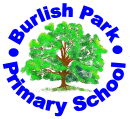Music Development Plan
Rivers CofE Academy Trust Music development plan summary
Burlish Park Primary School
Overview
|
Detail |
Information |
|
Academic year that this summary covers |
2025-26 |
|
Date this summary was published |
September 2025 |
|
Date this summary will be reviewed |
July 2026 |
|
Name of the school music lead |
Mrs Caroline Hyde |
|
Name of school leadership team member with responsibility for music |
Mrs Rebecca Jelfs |
|
Name of local music hub |
Severn Arts |
|
Name of other music education organisations |
Severn Arts, Dragon Music |
This is a summary of how our school delivers music education to all our pupils across three areas-curriculum, co-curricular provision and musical experiences- and what changes we are planning in future years. This information is to help pupils and parents or carers understand what our school offers and who we work with to support our pupils’ music education.
Part A: Curriculum music
This is about what we teach in lesson time, how much time is spent teaching music and any music qualifications or awards that pupils can achieve.
|
You will find a summary of our music curriculum on our website. Our Rivers music curriculum has been written by specialists in the subject using the National Curriculum and the Model Music Curriculum (2021). There is a trust Rivers music subject leader group to continue to develop and support all schools in the trust and schools are encouraged to collaborate for various events and opportunities. The intention of our curriculum is to help children to feel that they are musical and to develop a lifelong love of music. Children have 1 hour of classroom music per week. By the end of their journey in music at our school pupils will:
The structure of our music curriculum has the following elements:
The following are the opportunities to learn to play an instrument during music lesson time at our school.
We adopt a positive and proactive approach to ensure that children with SEND are able to express themselves and take an active part in music lessons. Adaptations to support this may include visual prompts and scaffolding. We have a range of partnerships that support our curriculum music offer.
|
Part B: Co-curricular music
|
We are proud to offer individual and small group music tuition in the following areas. This is provided by teachers from Severn Arts and Dragon Music.
Prices range from £11 to £16 for a 20 minute individual lesson and £5.35 to £7.90 for a 20 or 30 minute small group lesson. Tuition can be subsidised for pupils with pupil premium eligibility. Severn Arts also encourage families who are unable to meet the full cost of their services to visit their website for information about help with costs. We offer free small group music tuition for year 4 pupils in guitar and singing. Pupils showcase their learning at concerts for parents and carers at the end of each term. We also have a school choir which offers the opportunity for children to make and enjoy music in ensembles. Choir is for pupils from years 3, 4, 5 and 6 and is free to join. The choir rehearse after school once a week. Pupils are given the opportunity to perform at a variety of events and locations eg. Young Voices, school events, PTA fundraising events and local care homes. |
Part C: Musical experiences
|
The following musical experiences are planned for the academic year :
|
In the future
|
Three things that Burlish Park Primary School would like to improve in the coming years:
|
